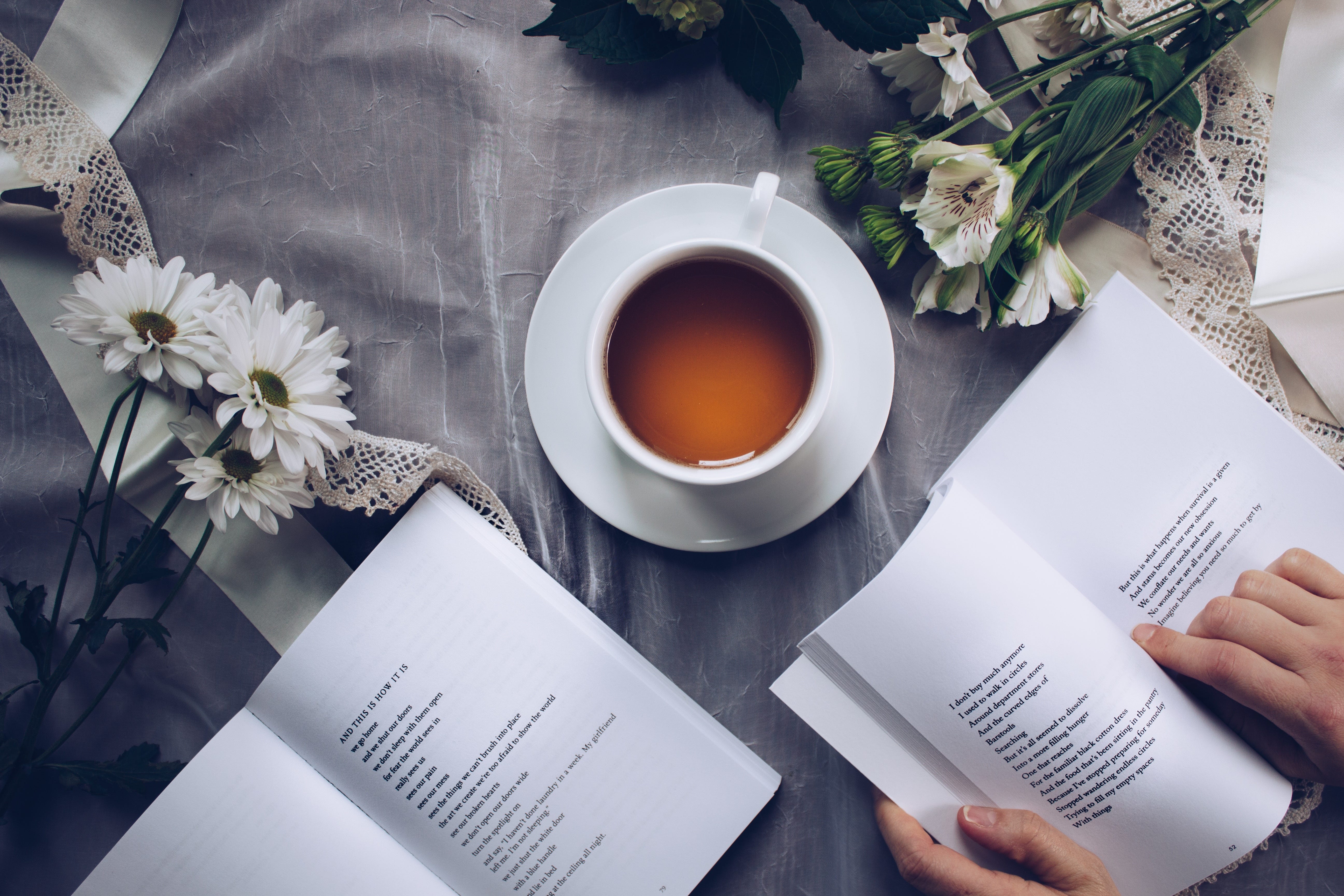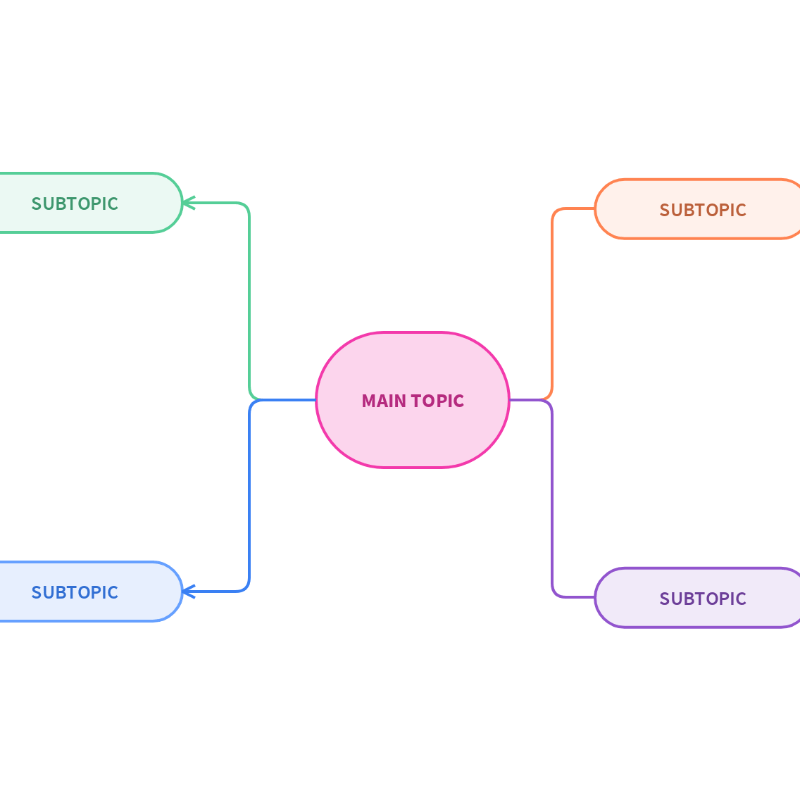
Poetry can be daunting. Billy Collins, former US Poetry Laureate, said this in his Masterclass: "Poetry makes a lot of people tense. You speak English, the poem is in English, and yet you have no idea what it means."
When people think of poetry, they often think of something that is long, very hard to read, and highly boring. While that might be true for a lot of older poets, spoken word poetry is much different. If you've heard of spoken word poetry before, chances are you saw that Ted Talk by Sara Kay about spoken word. If not watch it here.
Spoken word (also called slam poetry) is a type of performing art involving poetry that is spoken out loud to an audience. Usually (but not always!) expressing strong emotions, spoken word is performed at poetry slams, where each poet has three minutes to perform and the crowd is able to interact by snapping their fingers.
Today, I'm going to show you my process for writing spoken word poetry, as well as a few prompts to get you started. Let's dive in!
Spoken Word Poetry For Beginners
The idea is the hardest part for some poets and the easiest for others. I personally find that I write better poems when I'm relaxed, so I usually write poetry before bed or on a Saturday afternoon.
I find it hard to come up with an idea on the spot, so I'll open my brain up for a few days until I see something I want to write about.
Something that brings a poem up a notch is to find two things that share one metaphorical concept. For example, poet Rudy Fransisco wrote a poem called 'Rifle' in which he talks about an artist who turns guns into musical instruments. He compares this to his own fists in the way that something with the ability to injure could be taught to love.
An easy way to do this is to take a person in your life and compare them to an object. For example, I wrote a poem about a friend entitled 'Dandelion.'
She embodied the force of the wind.
The wildest rivers ran through her veins.
She was persistent, growing in the unlikeliest of places;
She longed to belong.
She grew in the soil, dark and wet and difficult,
But she learned to fly on the wind.
She became a seed with a wandering heart.
She learned to live outside of the darkness she came from
She learned to grow her wings and she taught herself to be free.
If you're stuck coming up with ideas, here is a list of my favorite poetry prompts.
And here are a few of my own:
I find it hard to come up with an idea on the spot, so I'll open my brain up for a few days until I see something I want to write about.
Something that brings a poem up a notch is to find two things that share one metaphorical concept. For example, poet Rudy Fransisco wrote a poem called 'Rifle' in which he talks about an artist who turns guns into musical instruments. He compares this to his own fists in the way that something with the ability to injure could be taught to love.
An easy way to do this is to take a person in your life and compare them to an object. For example, I wrote a poem about a friend entitled 'Dandelion.'
She embodied the force of the wind.
The wildest rivers ran through her veins.
She was persistent, growing in the unlikeliest of places;
She longed to belong.
She grew in the soil, dark and wet and difficult,
But she learned to fly on the wind.
She became a seed with a wandering heart.
She learned to live outside of the darkness she came from
She learned to grow her wings and she taught herself to be free.
See what I mean? You're taking two things and weaving them together in a new way.
A few ideas for your two concepts:
A few ideas for your two concepts:
- a person and a plant
- a person and an animal (such as a bird or a lion)
- a person and a natural event (such as a wildfire)
- A natural disaster and a painful life experience
If you're stuck coming up with ideas, here is a list of my favorite poetry prompts.
And here are a few of my own:
- Two people are behind two different closed doors in two different places. Write about how their paths cross.
- Write a two-voice poem. In this type of poem, you take two different perspectives and put them together. For example, Batman and Joker. This would be a really good one to do boy/girl relationships with.
- A love poem from one inanimate object to another. For example, a pencil and paper.
- Write about something that makes you angry.
An important thing to remember is this: Don't overthink it! Sometimes, you just have to be patient.
Another thing that always helps me when I'm in a rut is to watch other people's spoken word poems on YouTube. A lot of them have profanity, but I really like Sara Kay's poetry because it's all free of profanity and mature subjects for the most part.
When I sit down to write a poem, I turn off all distractions. I turn off my computer, put my phone out of reach, and make sure my area is quiet. And then, I write.
I like to start with a very messy first draft: I write down every idea I have for my poem, not worrying about how it looks or sounds yet. Another way to do this is through a mind map.
I like to start with a very messy first draft: I write down every idea I have for my poem, not worrying about how it looks or sounds yet. Another way to do this is through a mind map.

Once I have my basic ideas, I like to create my second draft using a computer. That way, I can get it all worked out and get all my lines where they need to be. Sometimes, I find that a line from the first stanza might work better in another stanza, so a computer makes it super simple to just copy and paste it. When I'm done, I'll stand up and read it out loud to make sure it sounds good before copying it into my poetry journal.
Typically, a spoken word poem has longer lines than other types of poetry, so having a full-size notebook makes it easier to fit everything in.
Don't be discouraged if you don't like you first or second (or even third!) draft. The only way to get better is to write, write, write. Another thing that helped me get better was to watch other spoken word poets online. How did they use their word choice to make their poems stick? What did they write about? How did their topic make me feel?
A lot of spoken word poems are angry or sad, but yours doesn't have to be! Just because other people do something doesn't mean you have to.
So, in a nutshell:
Typically, a spoken word poem has longer lines than other types of poetry, so having a full-size notebook makes it easier to fit everything in.
Don't be discouraged if you don't like you first or second (or even third!) draft. The only way to get better is to write, write, write. Another thing that helped me get better was to watch other spoken word poets online. How did they use their word choice to make their poems stick? What did they write about? How did their topic make me feel?
A lot of spoken word poems are angry or sad, but yours doesn't have to be! Just because other people do something doesn't mean you have to.
So, in a nutshell:
- Write when you're relaxed
- Don't overthink it!
- Watching videos of other people reading their poems might be a good inspiration
- Find two things that share one metaphorical concept
- Create a mind map and/or messy first draft
- Revise and practice reading it when you're done!
I hope this little guide helped you get a better handle on writing spoken word poetry or served as a good introduction if you've never heard of it before! Feel free to send me your poems if you like!
Happy writing, all!
Comments
Post a Comment